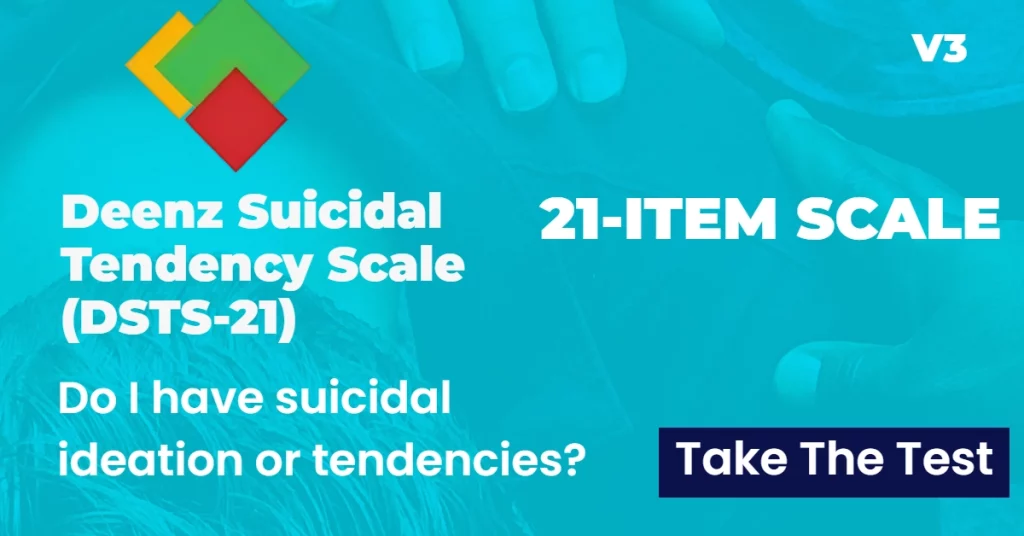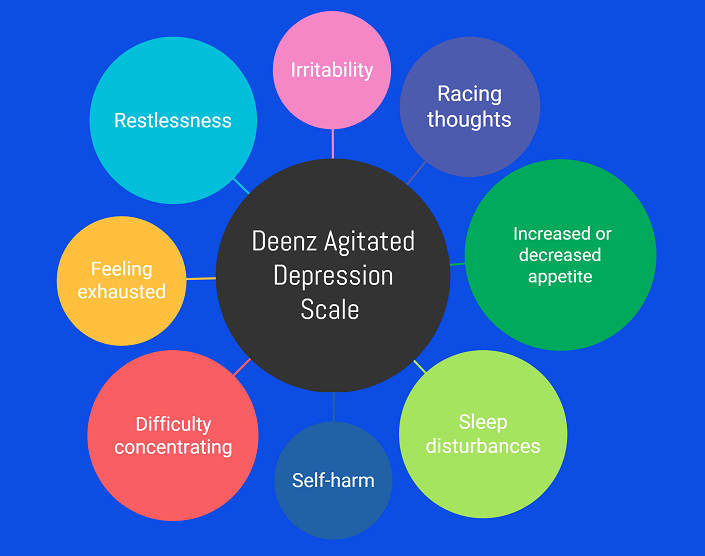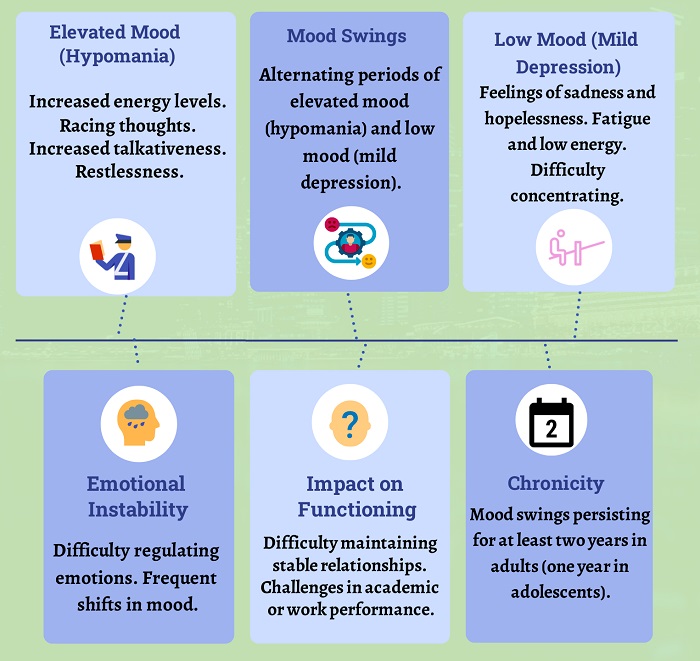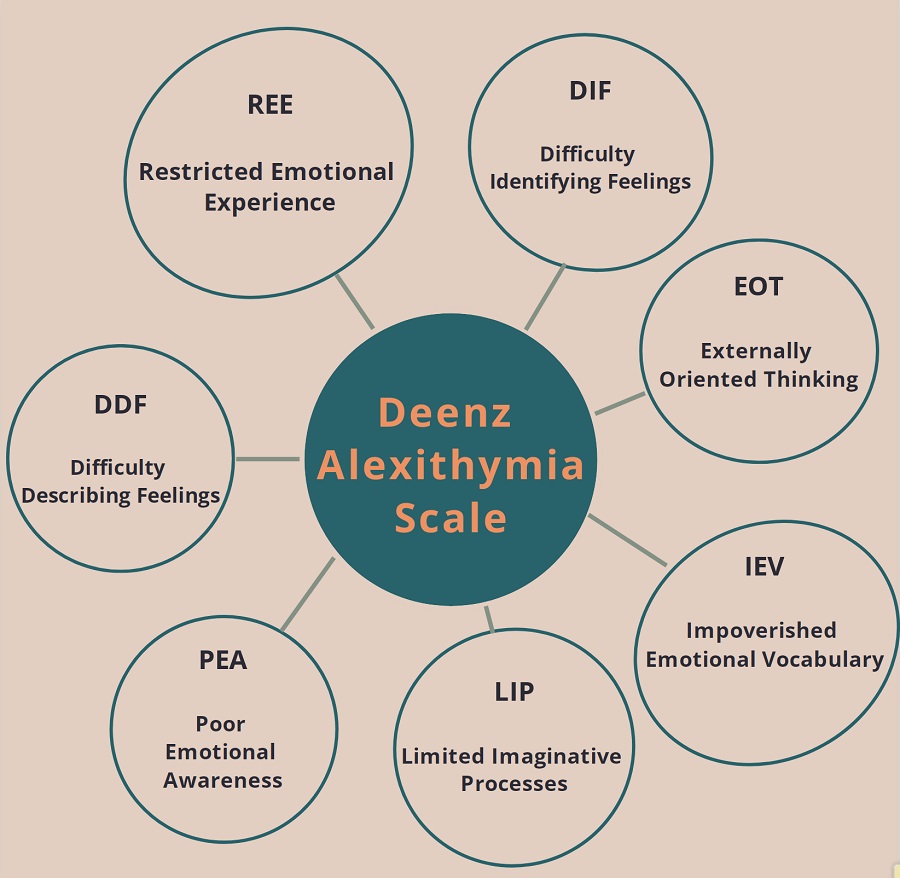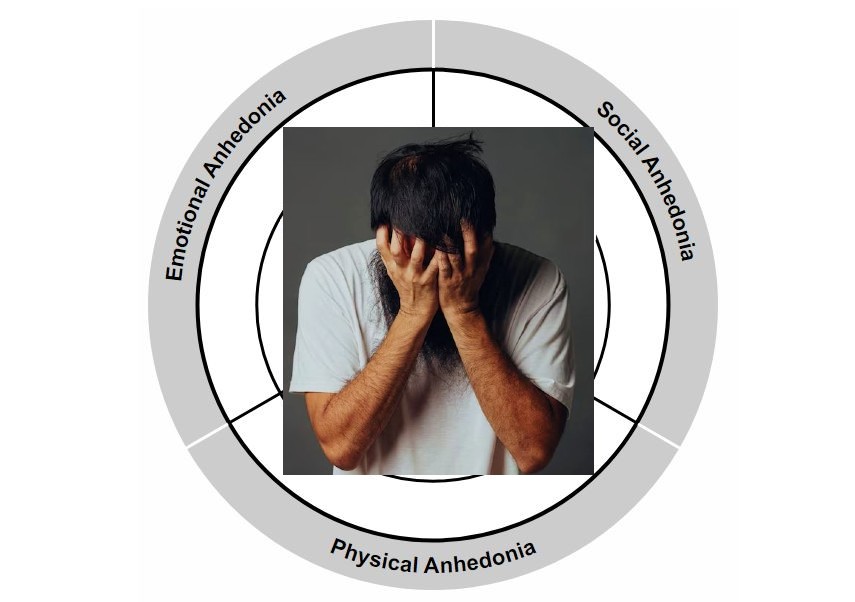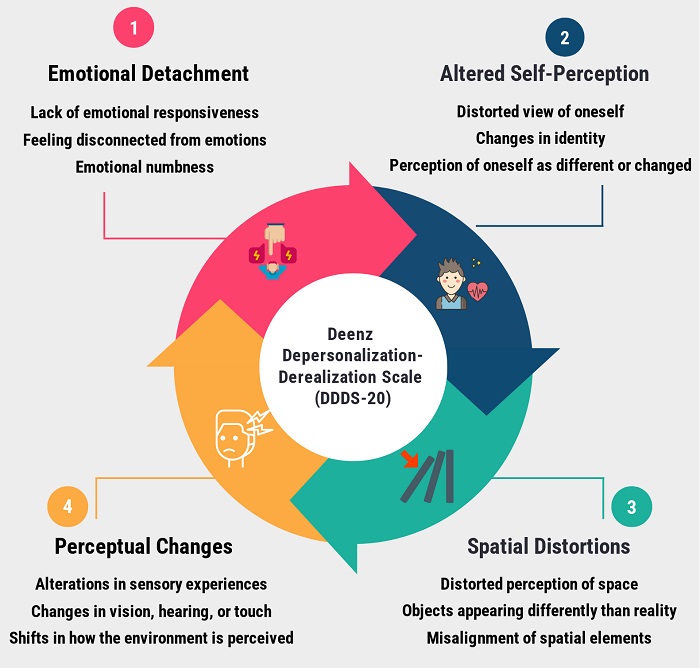Basic information | |
|---|---|
| Statements: | 24 |
| Duration: | 3–6 minutes |
| Type: | Self-assessment |
| Seminal work: | Deenz Suicidal Tendency Scale (DSTS-24) [ref] Development and Validation of the Deenz Suicidal Tendency Scale (DSTS-24) |
| Publishing year: | 2024 |
|
Instructions: Deenz Suicidal Tendency Scale is a 24-item questionnaire designed to measure tendencies toward suicidality. Participants are required to indicate their level of agreement with each statement. Participation in this computerized version is completely anonymous. The results provided are intended for educational purposes only. | |
The National Suicide Prevention Lifeline: Trained professionals, who are available 24/7 to listen and provide help.
Call 1-800-273-TALK (8255)National Suicide Prevention Lifeline is a confidential and free service.
Over the years our understanding suicidal thoughts and tendencies has evolved and modern psychology emphasizes that suicidal thoughts often arise in the presence of emotional pain and a strong sense of hopelessness. [1] Kleiman, Evan M., and Matthew K. Nock. “Real-time assessment of suicidal thoughts and behaviors.” Current Opinion in Psychology 22 (2018): 33-37. It is not necessary that individuals with suicidal thoughts can only manifest clinical signs of depression. Some people try to conceal their emotional struggles. Suicidal tendencies can result from various factors, including social, economic, and interpersonal issues. [2] Hom MA, …… “Are you having thoughts of suicide?” Examining experiences with disclosing and denying suicidal ideation.
Who is this quiz for?
Deenz Suicidal Tendency Scale (DSTS-24) was developed in 2015 and the main purpose of the scale was to measure suicidal tendencies among college students. In a case study, the scale demonstrated high accuracy in measuring the severity and risk factors associated with intense emotional experiences and behaviors related to suicidal tendencies.
Having suicidal thoughts is not a mental health condition itself but can be a severe symptom of any treatable mental health condition, such as depression, schizophrenia, and anxiety disorders, etc. [3] Nyer,…… 2013. Factors that distinguish college students with depressive symptoms with and without suicidal thoughts.
Is This Quiz Accurate?
Self-assessment tools are not considered accurate. This self-assessment is not designed to make a diagnosis of any mental health condition and if you are concerned with your symptoms you should consult a mental health professional for making a proper diagnosis.
In 2019, Suicide was the 10th leading cause of death and it is estimated that 800,000 people around the world commit suicide every year. Early professional help and support may stop people from taking their lives. [4] Suicide is a Leading Cause of Death in the United States “nimh.nih.gov”
The major challenge faced by people with suicidal thoughts is the unwillingness to get help. This self-assessment tool may be the first step toward getting professional help.
Does a high score mean I have some type of mental health condition?
Results provided in this suicidal tendencies quiz are intended for educational purposes only, A high score does does not necessarily mean you might have depressive symptoms. A high score may mean that there is an underling issue that may be causing the suicidal thoughts. The reason might be a ongoing stressful events or any mental health disorder.
References
Deen Mohd Dar. Development and Validation of the Deenz Suicidal Tendency Scale (DSTS-24) in a College Student Population: A Comprehensive Psychometric Evaluation. ScienceOpen Preprints. 2024. DOI: 10.14293/PR2199.000816.v1 ↩
Kleiman, E. M., & Nock, M. K. (2018). Real-time assessment of suicidal thoughts and behaviors. Current Opinion in Psychology, 22, 33-37. https://doi.org/10.1016/j.copsyc.2017.07.026 ↩
Hom MA, Stanley IH, Podlogar MC, Joiner Jr TE. “Are you having thoughts of suicide?” Examining experiences with disclosing and denying suicidal ideation. Journal of Clinical Psychology. 2017 Oct;73(10):1382-92. https://doi.org/10.1002/jclp.22440 ↩
Nyer, Maren, Daphne J. Holt, Paola Pedrelli, Maurizio Fava, Victoria Ameral, Clair F. Cassiello, Matthew K. Nock, Margaret Ross, Dori Hutchinson, and Amy Farabaugh. “Factors that distinguish college students with depressive symptoms with and without suicidal thoughts.” Official Journal of the American Academy of Clinical Psychiatrists, 25(1), 41. https://www.ncbi.nlm.nih.gov/pmc/articles/PMC3791316/ ↩
Suicide – An overview of statistics for suicide. https://www.nimh.nih.gov/health/statistics/suicide ↩




